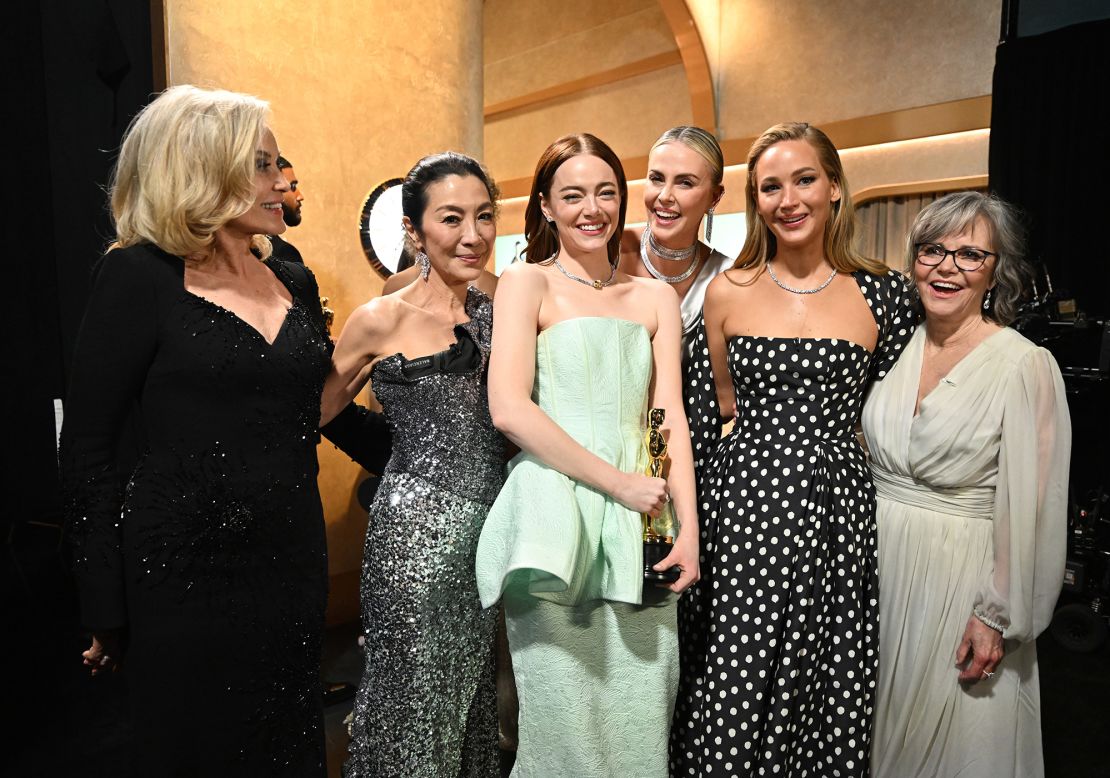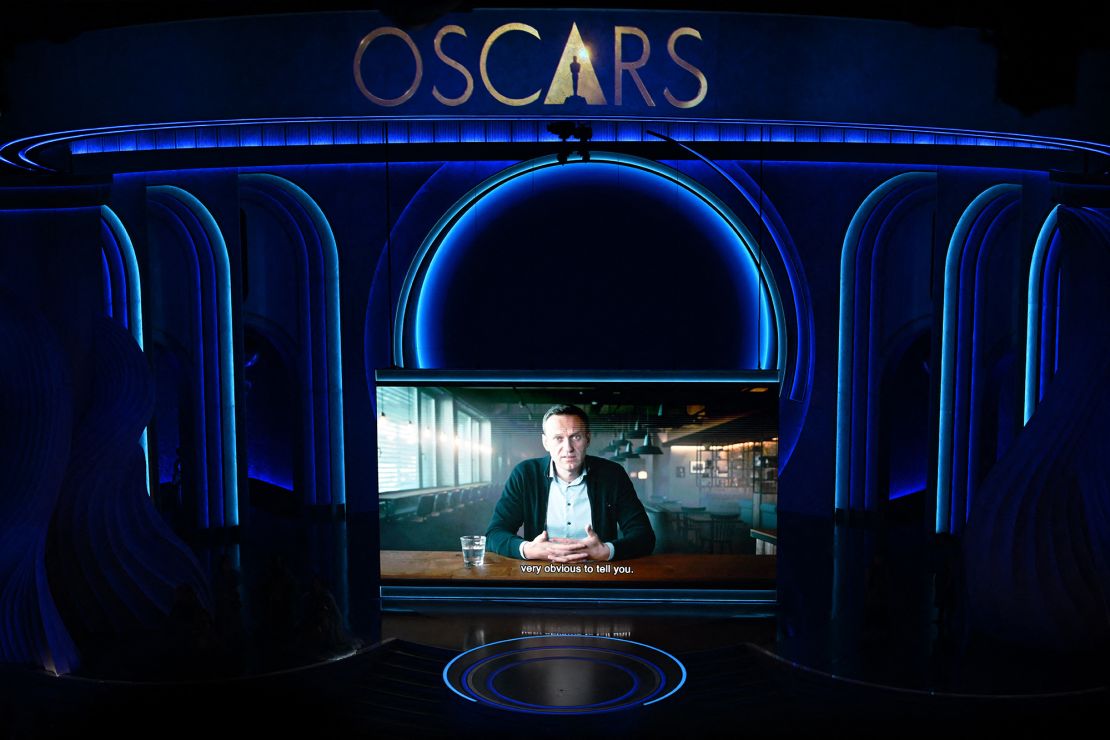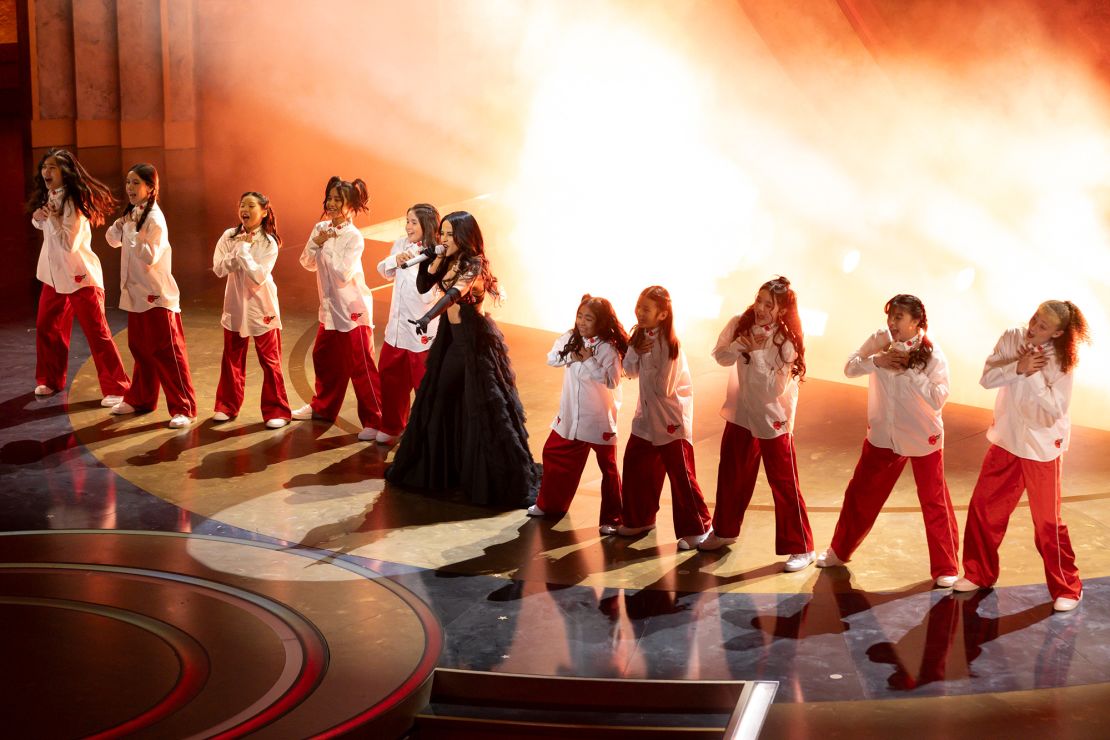
This article is more than
1 year old
The second one of those priorities has taken on greater significance amid a slump in theatrical ticket sales, victimized by a one-two punch from Covid and streaming. Yet the 96th Academy Awards shined the brightest in that third basket, delivering an award telecast defined by its playfulness and punctuated by moments of fun, with Ryan Gosling’s contributions worth the price of admission alone.
Those qualities were both necessary and welcome, since the awards themselves followed the anticipated script, closing with the unsurprising act of handing the coveted best-picture prize to “Oppenheimer,” one of seven statuettes amassed by director Christopher Nolan’s historical epic.
Indeed, the main challenge facing the producers hinged on the general lack of suspense regarding who would win in key categories other than best actress. That award went to Emma Stone for “Poor Things,” whose emotional acceptance somewhat compensated for the fact the choice deprived Lily Gladstone of what would have been a historic win.
Otherwise, the selections went according to form, recognizing those who had plenty of time to rehearse and fine-tune their acceptance speeches over the course of the awards season that began way back in early January.
It’s worth noting, too, that even a great show – and this was, by Oscar standards, a very good one – might not be enough to boost TV ratings. The Oscars faced the double whammy of starting an hour earlier and the switch to Daylight Savings Time. Then again, in the current TV environment, just holding steady against the gravitational pull of audience fragmentation amounts to a victory.
As a case in point, consider the strike-delayed Emmys, a nicely executed telecast that, for various reasons, still slipped to an all-time ratings low.
With that as background, here’s a breakdown of the night’s highlights, with a few lowlights at the end:

The acting testimonials. Having past winners introduce the nominees in the acting categories and give them a moment in the spotlight felt like a nice, warm reminder that it really is an honor just to be nominated. The only drawback was Da’Vine Joy Randolph, the night’s biggest sure thing, beginning to cry before she even heard her name called for “The Holdovers.”
Granted, the format risked filling the awards with a little extra of that Hollywood-style, pat-ourselves-on-the-back pomposity, but the beaming faces of the nominees made it one of the most celebratory flourishes from this year’s show.
He’s not just Ken. In one of those rare instances of a telegraphed event that actually lived up to the anticipation and hype, Ryan Gosling crushed his performance of “I’m Just Ken” with gusto, after a truly amusing bit that involved him riffing on the “Barbenheimer” rivalry with Emily Blunt. He might be No. 2 to Barbie, but give Gosling this year’s Oscars MVP award.
Jimmy Kimmel. While there’s nothing bold about using the Oscars to showcase ABC’s late-night host, Kimmel as usual brought the right light touch to the proceedings, while adding a bit of heft to his monologue by addressing the strikes that hobbled the industry and pausing to give the award-show crew their moment in the spotlight amid negotiations between the union that represents them (The International Alliance of Theatrical Stage Employees) and the Alliance of Motion Picture and Television Producers.
Brevity (relatively, anyway). Like the Emmys, the Oscars actually finished handing out awards before their allotted end time (the Oscars were afforded an extra half-hour), forcing the producers to do some vamping near the end.
The earlier start helpfully allowed the show to breathe a bit, not just with the actor tributes but performing the song nominees, traditionally one of the more audience-friendly elements within the telecast. So … maybe start at 7:30 p.m. ET next year?

Politics. To the “Shut up and act” crowd, this year’s Oscars largely obliged, with a few notable and striking exceptions: “The Zone of Interest” director Jonathan Glazer’s speech about how his World War II film reflected on the conflict in Gaza; a short tribute to the late Russian activist Alexey Navalny tied to the In Memoriam segment; and the director of “20 Days in Mariupol,” Mstyslav Chernov, providing a heartfelt commentary about the devastation the Russian invasion has inflicted upon Ukraine.
Kimmel also directed a zinger at Sen. Katie Britt for her State of the Union response, and with time to kill near the end, generated a roar from the audience with a response to former President Donald Trump’s social-media post criticizing him, which at least wasn’t unprovoked. For the most part, though, the evening focused on the central task at hand, a bit of an upset in an election year.
Spreading the wealth. Even with “Oppenheimer” nearly blotting out the sun, seven of the 10 best-picture nominees went home with at least something, with “Maestro,” “Past Lives” and “Killers of the Flower Moon” being the three that left empty-handed.
The international Oscars. Film awards have increasingly taken on an international flavor, and that was especially true this year, with Hayao Miyazaki’s “The Boy and the Heron,” “Anatomy of a Fall,” “Godzilla Minus One” and “The Zone of Interest” all collecting hardware.
John Cena’s (sort of) streak. What looked like a silly stunt, having the actor walk out naked to commemorate the streaker who raced across the Oscar stage a half-century ago, actually became a pretty clever silly stunt by wedding that to presenting best costume design.
As for the few negatives….

Presenter banter. Even in a year where it was probably better than usual, much of it still wasn’t very good, although the Arnold Schwarzenegger/Danny DeVito exchange with Michael Keaton about the “Batman” movies nearly redeemed everything else.
The honorary Oscars. The failure to include a single clip from the previously presented honorary awards, instead simply directing people to the Academy’s website, felt like a slap in terms of carving out at least some time for the industry’s past.
Flamin’ cold. Although the song performances were generally quite strong, the rendition of the entry from “Flamin’ Hot” looked too much like something from a cheesy Las Vegas revue.